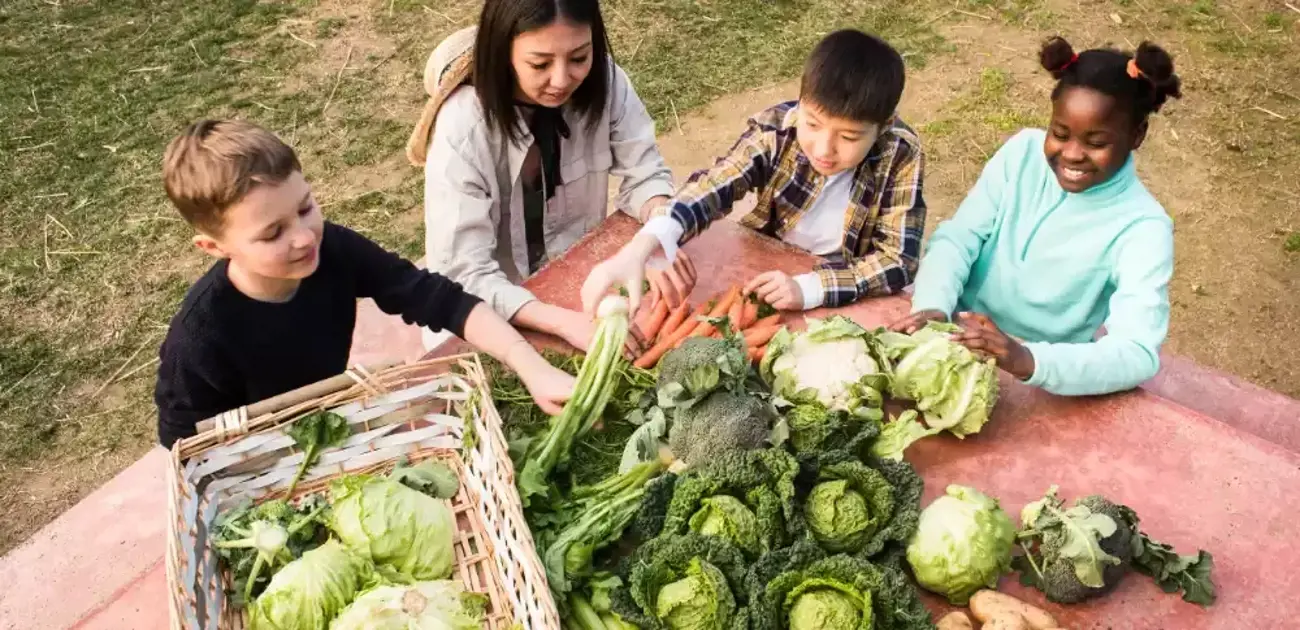Empowering kids to be green
Children have a natural affinity with the environment. From rescuing worms and planting seeds to a love for climbing trees, swimming and having fun in the water and playing with sticks, their curiosity and ability to live in the moment means that caring for the environment around them is just a part of everyday life.
Yet, as the issue of the environment and climate change rages and the goal to be more ethical dominates the news, it's easy for children (and adults) to feel powerless in protecting the planet for our future generations. But while the politicians wrangle over how they want to move forward, there are many things we can do to make children feel empowered to find renewable ways of protecting the environment for their own future.
Julie Davis, Associate Professor at Queensland University of Technology (QUT), believes the solution lies in nurturing children's capacity to be active citizens for minimalism and sustainability, empowering them to make a difference.
In her book about green living with kids; Young Children and the Environment she writes, "…it is about putting these issues in context and identifying the power of early childhood education for sustainability (ECEfS) as a catalyst for change, and the power of the very young as agents of change for sustainability. It is about learning, hope and taking action to ‘make a difference’ within the scope of children's own lives."

Green living in everyday life
Having an environmental and eco friendly approach to daily life can create positive, empowering opportunities for children to make a difference. From using the half flush on the toilet to recycling old clothes occasionally having vegetarian or plant based meals, nurturing a child’s natural love and respect for the planet, and having fun at the same time, the foundations for sustainable habits are built – something that will stay with them for life.
- Recycling. Recycling and upcycling can be so much more than putting empty boxes in a wheely bin. Reusing cartons around the home makes recycling a more tangible experience that is also heaps of fun! An empty egg box can be used to hold treasures; old newspapers and magazines make great collages. Old bottle lids can be stored for art projects; cardboard boxes can become a boat or a racing car.
- Homegrown cooking. Kids love to plant and grow seeds while gardening. Take a trip to the garden centre and give them the freedom to choose their own plants, grow them and care for them. Delivering fruits and vegetables they have grown themselves to the dining table is a fabulous way to develop a paddock-to-plate approach to eating. This will both set them up with healthy eating habits, teach about nutrition and the origins of food, as well as teaching responsibility and caring for a zero waste philosophy. If growing your own fruit amd vegies isn’t possible, shop at the farmer’s markets together.
- Living efficiently. There are many ways that efficient living can become a natural part of daily life – turning off the tap when brushing teeth, turning off lights, and not wasting food. You can also take it one step further by enlisting the help of the children to do a ‘green audit’ of the house, spotting where the family could make more efficient choices in different products around your home. For older kids, try holding a ‘no rubbish’ competition, to see whether kids can manage to live a week without creating any rubbish.
Green living with people in the community
If children are feeling motivated and want to take their environmental pursuits to the wider community, there are plenty of ways you can support them in this.
- Take part in events. There are plenty of community events organised that focus on natural resources and the environment. As a family, take part in Earth Hour, or organise a group for Clean Up Australia. There are also many government initiated environmental education programs at local libraries and museums.
- Organise your own events. Teach about upcycling by holding a garage sale, or shopping for items in second-hand shops. You could also organise your own clean up at the school or local park.
- Visit the tip. This one trip will teach children about landfill and the importance of recycling and reducing waste.
- Get involved in a community garden. A community garden is a wonderful way for little environmentalists to experience the origins of food first-hand, as well as be surrounded by other community members who care about the planet. You will be able to find where these are in the local or school newsletter.
- Spend time in nature. Nothing will spark a child’s love for the natural environment more than spending time in it playing and exploring. Swim in the sea, take a bush walk and climb trees, and their direct connection with the outdoors will help them to understand why it is important to be active in protecting our planet.
Most of all, children learn by example, so if we want to raise green, environmentally conscious kids, we must also show respect for the environment and enthusiasm for its protection ourselves.
































